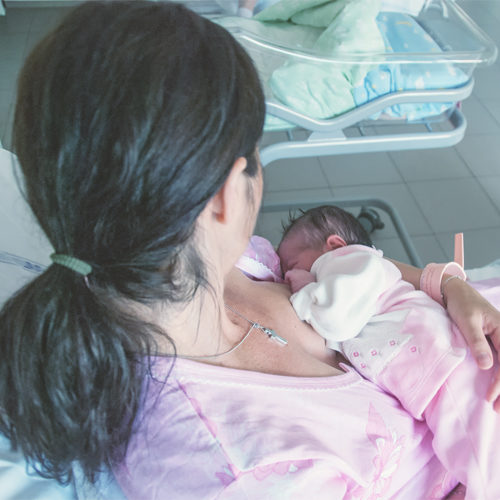Recovering from childbirth

Congratulations! Your Child has finally arrived after nine months of patiently waiting, but it doesn’t end there.
Regardless of your mode of delivery — natural or C-section — your body has been through significant stress, and it will take time to recover.
How long does it take to recover?
Although the first six weeks after delivery is considered the recovery period, your body may recover earlier or later than that. If you had a vaginal delivery, you will begin to feel better in a shorter time than if you had delivered via a C-section
What to expect during recovery
These are the normal changes to expect after delivery:
Vaginal bleeding and discharge (lochia): In the first 10 days, it will be heavier than your period and often contains small clots, but with time, it will fade to white or yellowish discharge and finally stop after a few weeks.
Sore perineum: The area between your vagina and anus will be sore in the first few weeks after delivery, even if you were not given a cut or had a tear during labor.
Nipple and breast soreness: Your breast and nipple may feel sore in the first few days due to breast engorgement since your baby hasn’t yet learned how to latch on your breast.
Afterpains: You will experience abdominal pains as your uterus continues to contract in the days following the delivery. You will feel the pain mostly during breastfeeding.
Constipation: You may be constipated for a few days after delivery. This is often caused by pain around the perineal region, stitches, or anti-pain medications used during labor.
Hemorrhoids: These are swollen blood vessels in the rectum, which can be painful and may bleed during defecation. You might have developed them during pregnancy or labor.
Urinary incontinence: If you had prolonged labor, your bladder may leak urine when you cough, sneeze, or strain.
Stitches: If you were given a surgical cut in the vagina opening to enable your baby to come out easily or you had a tear, you would have stitches in the perineum, and they will take some time to be absorbed.
Edema: During pregnancy, your body retains more water, and that will continue for a while after delivery because of your progesterone levels.
Weight loss: On the first day after delivery, you will lose about 3-6 kg, which accounts for the baby’s weight, placenta, and amniotic fluid. After that, postpartum weight loss becomes a gradual process.
Hormonal changes: After the delivery, it will take some time for your hormones to normalize, and you may experience some hormone-related symptoms. Some of the symptoms are excessive sweating, emotional changes, and hair loss.
Emotional changes: You may experience mood swings — one minute you’re excited, and the next, you’re sad. This is known as baby blues, and it is caused by hormonal changes. It lasts a week or two. However, if it doesn’t stop after a few weeks, and it affects your ability to take care of Your Child, then it may be postpartum depression, which is a more serious condition, and you need to contact your doctor.
Healing tips during recovery
The following tips can help you recover faster:
- Get a lot of time to rest. Sleep when the baby sleeps
- Eat well and plenty
- In the first week, take care of your perineum by using a squirt bottle to rinse it with warm water each time you use the toilet
- Sitting on an ice pack several times a day will help reduce pain
- After your perineum has healed, you may start your Kegels and other exercises
- If you had a C-section, take good care of the scar by keeping to your doctor’s instructions
- Practice exclusive breastfeeding
- Keep to your doctor’s appointment
- You may want to discuss birth control options with your doctor, as you can get pregnant again even without seeing your period for the first time after delivery.
When to see a doctor
Contact your doctor if you have any of the following:
- Fever of 38 degrees Celsius or above
- Worsening abdominal pain
- Large clots on your pad or your pad gets soaked in less than an hour
- Foul-smelling vaginal discharge
- Thoughts of harming your baby or suicidal thoughts, which are signs of postpartum depression
- Other signs or symptoms that may worry you or your partner
Verified:
Dr. Piyawut Kreetapirom, MD. license no. 41578 (31 March 2021)



